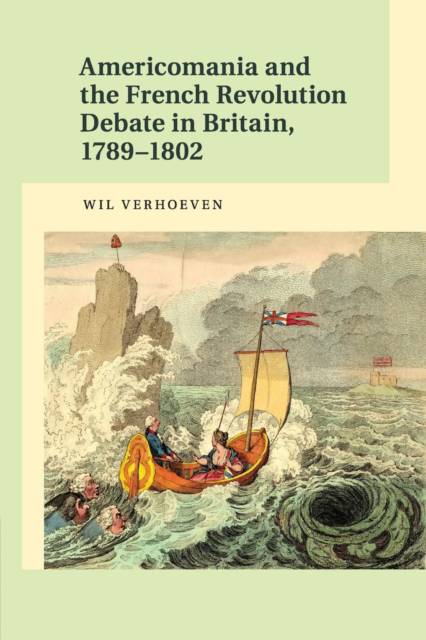
Bedankt voor het vertrouwen het afgelopen jaar! Om jou te bedanken bieden we GRATIS verzending (in België) aan op alles gedurende de hele maand januari.
- Afhalen na 1 uur in een winkel met voorraad
- In januari gratis thuislevering in België
- Ruim aanbod met 7 miljoen producten
Bedankt voor het vertrouwen het afgelopen jaar! Om jou te bedanken bieden we GRATIS verzending (in België) aan op alles gedurende de hele maand januari.
- Afhalen na 1 uur in een winkel met voorraad
- In januari gratis thuislevering in België
- Ruim aanbod met 7 miljoen producten
Zoeken
Americomania and the French Revolution Debate in Britain, 1789-1802
Wil Verhoeven
Paperback | Engels
€ 72,45
+ 144 punten
Uitvoering
Omschrijving
This book explores the evolution of British identity and participatory politics in the 1790s. Wil Verhoeven argues that in the course of the French Revolution debate in Britain, the idea of "America" came to represent for the British people the choice between two diametrically opposed models of social justice and political participation. Yet the American Revolution controversy in the 1790s was by no means an isolated phenomenon. The controversy began with the American crisis debate of the 1760s and 1770s, which overlapped with a wider Enlightenment debate about transatlantic utopianism. All of these debates were based in the material world on the availability of vast quantities of cheap American land. Verhoeven investigates the relation that existed throughout the eighteenth century between American soil and the discourse of transatlantic utopianism: between America as a physical, geographical space, and "America" as a utopian/dystopian idea-image.
Specificaties
Betrokkenen
- Auteur(s):
- Uitgeverij:
Inhoud
- Aantal bladzijden:
- 400
- Taal:
- Engels
Eigenschappen
- Productcode (EAN):
- 9781107567283
- Verschijningsdatum:
- 17/12/2015
- Uitvoering:
- Paperback
- Formaat:
- Trade paperback (VS)
- Afmetingen:
- 152 mm x 229 mm
- Gewicht:
- 530 g

Alleen bij Standaard Boekhandel
+ 144 punten op je klantenkaart van Standaard Boekhandel
Beoordelingen
We publiceren alleen reviews die voldoen aan de voorwaarden voor reviews. Bekijk onze voorwaarden voor reviews.









